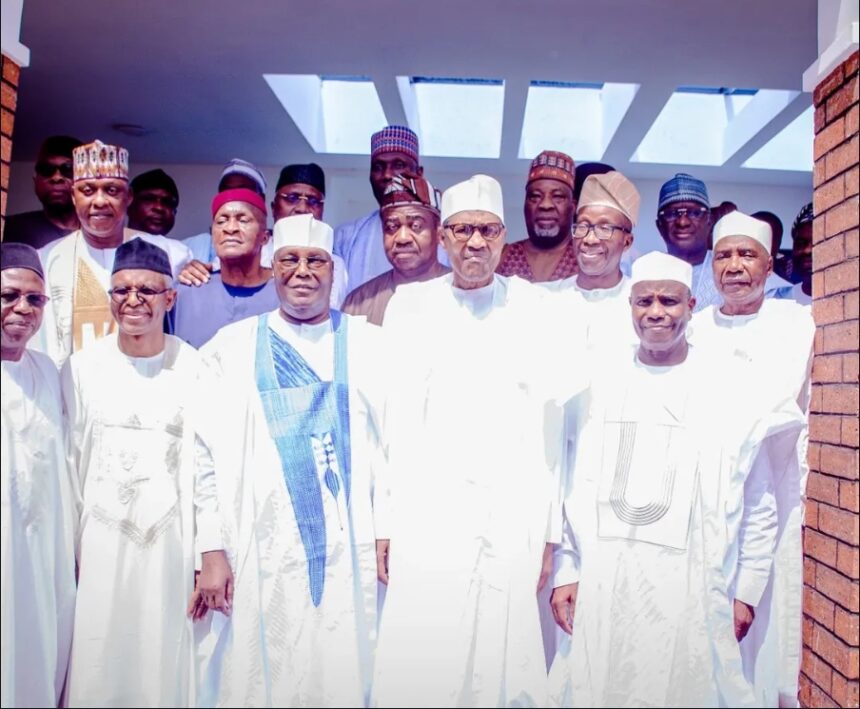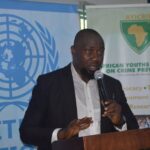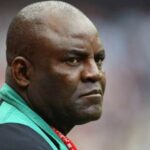The National Chairman of the All Progressives Congress (APC), Dr Abdullahi Ganduje, has brushed off speculations of a formidable opposition coalition led by former Vice President Atiku Abubakar, labelling it a “futile alliance” even as anti-APC coalition continues to shape up.
The remarks come amid rising political manoeuvres following several prominent figures making high-profile visits to former President Muhammadu Buhari at his residence in Kaduna.
On Friday, April 11, 2025, Ganduje led members of the party’s National Working Committee (NWC) to meet Buhari.
The meeting came just hours after opposition leaders, including Atiku and former Kaduna Governor Nasir El-Rufai, paid a similar visit.
The timing and context of these meetings have ignited widespread speculations and discussions about potential political realignments to buil-up anti-APC coalition ahead of the 2027 general elections.
Reacting to the development, Ganduje was quick to brush aside any notion of a serious threat to the ruling party.
He asserted: “We are not worried at all. This is just history trying to repeat itself. They went on a joint venture, which will not work because from what we have seen, there are just some particles that cannot come together. It is a game, and we will not reveal our technicalities on how to handle it, but we assure you, we are equal to the task.”
He added that the APC was not only focused on maintaining its hold on power but also expanding its influence ahead of the 2027 polls.
“We are eyeing other states that will come into our fold. Either the governors themselves will come, or we go for election and defeat them to increase our tally. We are comfortable, but we are not resting. We shall continue,” Ganduje added.
While Ganduje dismissed the political developments from the opposition, some political analysts have viewed it as a calculated response to the earlier gathering led by Atiku and El-Rufai.
Some analysts have opined that the visit of Ganduje and APC’s NWC to Buhari was an attempt to reaffirm the former President’s loyalty to the party amid growing concerns about defections by anti-APC coalition proponents.
The APC has been grappling with internal divisions, particularly following El-Rufai’s recent defection to the Social Democratic Party (SDP) and his public criticism of President Bola Tinubu’s administration.
Recently, discussions have emerged regarding Tinubu’s appointments, suggesting that they purportedly favour the South Western Region of Nigeria while marginalizing the Northern part of the country.
The discussion was ignited by Senator Ali Ndume, the lawmaker representing Borno South Senatorial District of Borno State at the Senate, who accused Tinubu of favouritism and neglecting federal character in his appointments.
However, the Presidency responded, releasing the list of Tinubu’s appointments while debunking the allegations.
Meanwhile, these allegations have sparked speculations that some northern bigwigs might not support the re-election bid of Tinubu in 2027, should he announce his intention to run for the presidential seat again.
Amidst the speculations, Atiku, the Peoples Democratic Party (PDP) presidential candidate in 2023, led a delegation of opposition leaders to Buhari’s residence.
The group included El-Rufai, former Sokoto Governor Aminu Tambuwal, former Imo Governor Achike Udenwa, former Benue Governor Gabriel Suswam, former Adamawa Governor Jibrilla Bindow, former Minister of Justice Abubakar Malami, and former Minister of Communications Isa Pantami.
Although the visit was officially described as a Sallah homage, however, the visit has intensified speculations about a potential opposition coalition aimed at challenging Tinubu in 2027.
Atiku has openly advocated for such a coalition, and El-Rufai’s defection has added momentum to discussions about uniting opposition forces, including the PDP, Labour Party (LP), and SDP.
The inclusion of Malami and Pantami, both Buhari allies, in the delegation has further raised eyebrows as it appears that the plot by anti-APC coalition is thickening.
Some analysts suggest that Atiku and El-Rufai may be courting members of Buhari’s CPC bloc, which remains a significant force within and beyond the APC.
Buhari, a founding figure of the APC and leader of its influential Congress for Progressive Change (CPC) bloc, remains a pivotal figure whose endorsement could sway political loyalties.
Ganduje’s visit has been seen by some as an effort to secure Buhari’s support and counter any narrative that the former president might be distancing himself from the ruling party.
This also comes as reports have emerged that Tinubu is purportedly taking decisive steps to curb defections from the CPC bloc within the APC.
According to some reports, the move comes amid growing concerns over the potential exit of key CPC members, a faction historically loyal to Buhari, which could weaken the APC’s cohesion ahead of the 2027 elections.
Sources indicate that Tinubu has purportedly delegated Senator Umaru Tanko Al-Makura, a prominent CPC figure and former Nasarawa State governor, to engage and appease the bloc’s loyalists.
It would be recalled that the CPC, a founding component of the APC’s 2013 merger with the Action Congress of Nigeria (ACN) and others, remains influential, particularly in some northern states like Katsina and Jigawa.





